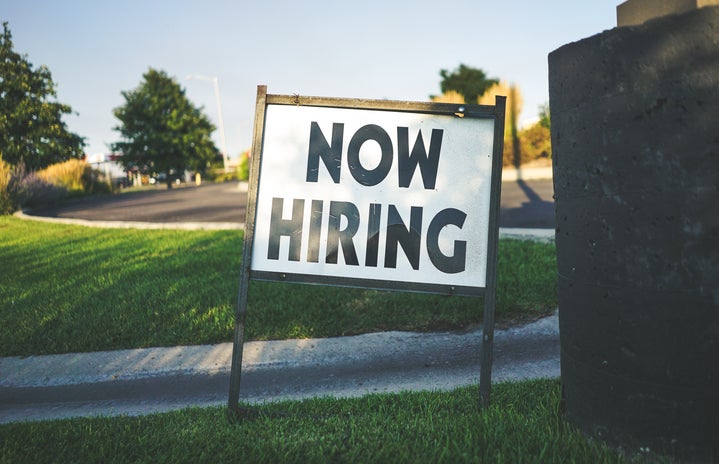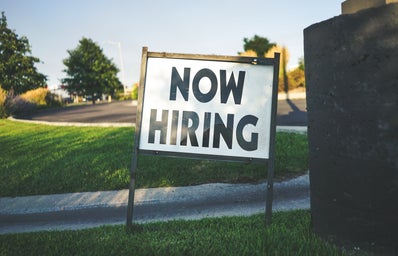As undergraduates, the question we hate to answer and love to avoid is often: “what do you want to do after graduating?”. For some of us, we might have a clear path we want to pursue after graduation, but for a lot of us, we feel a huge sense of responsibility to decide what we want to do for the rest of our lives. It is a question that makes us feel scared and lost, and a question that we are asked often. Today, Her Campus is interviewing a fellow McGill graduate, Averie Hah, who recently just graduated last year. As she reflects her time at McGill, she tells us what her experiences have taught her to transition from a student to entering the “real world”.
Sooji for Her Campus (HC McGill): Hi Averie, thank you for joining me today! First off, tell us about yourself. What did you study when you were at McGill? And what are you doing now?
Averie Hah (AH): I graduated with a major in Marketing, and a minor in Economics. I just graduated last year, and I am currently working as a Communications Coordinator at Reitmans, here in Montreal.
HC McGill: How did you decide on your major/minor? Did you end up finding it useful for your career?
AH: When I first chose my major, it wasn’t particularly because I loved marketing. It was more of a process of elimination, in that I knew I wasn’t as interested in pursing other majors. I also wasn’t enjoying school overall at that time, and I think that’s why at first, I actually really disliked my major. But once I started investing more time in school and my major, I got to know marketing a lot more could see how it was the right “fit” for me, because it requires both creative and analytical skills. Even when I wasn’t sure about marketing, I still knew I was more of a creative person. I wanted to leverage that and it seemed like marketing was the best option that reflected my interests. In the end, it ended up being the right choice for me. I found that my major was definitely very useful, because it gave me a solid foundation and gave me a lot of confidence knowing that I studied the basics of the field, and that I was ready to dive in and learn more in-depth about real life applications.
HC McGill: If you could go back, would you still choose marketing as your major?
AH: Yes, I would definitely choose marketing as my major again. But I would maybe start my major earlier, especially since I now know that you really won’t have a lot of opportunities to explore outside your major. I would invest more time and leave more space to take other classes that aren’t specifically marketing related. The core classes I took in second year was the only chance I had to get familiar with other aspects of business. Even if my focus is marketing, I now find that other aspects of business are just as important to know as well.
HC McGill: What was your overall McGill experience like? What were some major things you learned during your time as an undergraduate student?
AH: My McGill experience is something that I truly value. I had the most amazing experience at McGill because I met some of the greatest friends that I can still talk to now even after gradating, and later in my life. I made the most brilliant memories with these people- I laughed, I cried, I traveled with them and to have spent my most valuable period of my “youth” with them was a blessing. In terms of what I learned, the most important growth I experienced at McGill was personal growth. While coming to McGill was mainly for academic reasons, I learned a lot about how to be more responsible. It was my first time living alone and being solely responsible for myself because anything I did, I couldn’t blame anyone else. That was a very important, but tough realization I had that took a long time for me to learn. I also learned that the people you meet here are so valuable, because you meet such a diverse group of people. You never know if you’ll run into them at different parts of the world. I learned a lot from the people here, because they all help you to open up your mind and gain more perspective on others.
HC McGill: If you could go back, is there anything you would change about your McGill experience?
AH: I would go to my classes more often, even if it is a class that I don’t care about as much. I never gave other classes a fair chance, because I already had it ruled out that it wasn’t something I was interested about, and therefore, I didn’t need to care about it as much. In the end, every class has something valuable to offer. I think I would have valued my time at McGill more if I had learned more about other subject areas. I would keep a more open mind towards other people here as well. At first, I blamed my shyness for not being as open to meet others, and would think, “I will never run into this person again, so I don’t need to spend as much time with them”. But you really never know who you will run into again, and how interesting people can be once you take the time to find out more about them.
HC McGill: Do you think you were prepared to graduate and enter “the real world” at the end of your McGill career? What were some of the most surprising things/difficulties you faced?
AH: I was ready mentally in terms of knowing that at the end of my undergrad, it was time for me to leave. I knew that if I didn’t move onto something bigger and had stayed any longer at McGill, I would feel stagnant. However, this didn’t mean that I was necessarily equipped with the right tools to jump into the workforce. I had two internships during my time at McGill, and I thought I was ready to start working right away and become an “adult”. But I wasn’t fully ready and I didn’t have enough confidence in my interests to really believe that I could make the next move and get into the field I wanted to work in. Fashion retail was a major interest of mine but I wasn’t sure if I had the right tools, I was scared that I wouldn’t find jobs that were good enough. In some sense, I felt ready to leave, but the other half of me wasn’t actually ready to jump into the next step.
HC McGill: What are some major differences you found between being a student and working full-time?
AH: When you start working, there are no such thing as grades. They don’t give you a clear feedback for every project you complete. Not getting a lot of feedback was the toughest part for me, because you never know if you’re doing a good job. Your boss might tell you once in a while that your project was good, or that you can work on certain areas, but nobody else will give you clear guidance that if you do x, you will see y results. There is no specific path, there’s no number of credits you need to achieve and complete your task. You just always have to trust that you’re doing the right thing, and you can only continue to do your best. Setting personal goals was something that I found to be extremely important. I was never the type to have specific goals, because in university, the sole goal and purpose was to graduate and come out of college well-equipped. But now, it’s up to you to decide where you want to be and what you want your goals to look like. Another main difference is that your leisure time is a lot more enjoyable. When you’re working, you go to work, come home, and you don’t have to worry about tests or assignments lingering in the back of your mind. You don’t feel guilty for having free time. That’s why I think finding a hobby, or having a close group of friends becomes more important when you start working.
HC McGill: Do you have any advice for any undergraduates right now, specifically for students who feel lost about their future?
AH: I recently read a book called “The Defining Decade”. It tells stories about how people in their 20s would come to therapy sessions and describe their state as being dropped in the middle of the ocean. It’s all up to you to decide which direction you want to swim to, but you never know which direction is the “right one”. What if you pick one that leads to no end, and you just end up swimming aimlessly? I think that explains very well about how a lot of 20-somethings feel right now. But all you can do when you’re at this point is to just make a decision. You don’t have to fear that this decision you make will be the “wrong” one, because at least you were brave enough to choose a path and you can come out of it realizing what you like or what you don’t like. You wouldn’t have learned anything if you hadn’t gotten through with it. People always say “I have no idea what I want to do”, and I used to say that all the time too. But that’s not necessarily true. You actually DO know and have some ideas of what you like, what you don’t like, and you’ve learned that over the past 18, 19, 20 years of your life. it’s up to you to make the best out of whatever you have learned and built up leading up to now, and use that to make a decision you think will make sense the most for you. I came out of my internships realizing I didn’t want to work in those fields. I have no regrets about doing that. It led me to a path that I enjoy a lot more now. You have freedom to explore your 20s, but it doesn’t mean go travel aimlessly, or do something with no goal and come back after that trip to only end up in the same spot. Do not waste your 20s- you are free to decide and explore whatever you want to do, but have to explore intelligently.
Images provided by interviewee.


